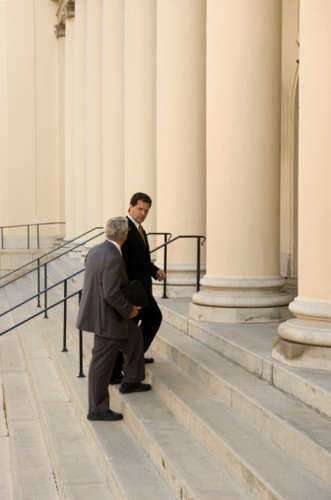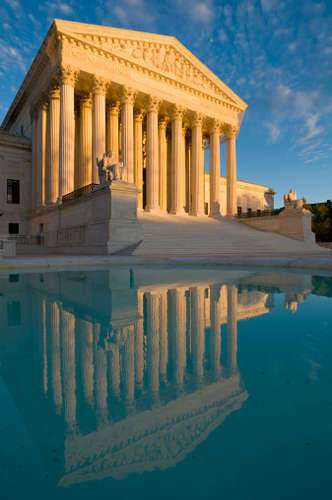
Senator Background
US Senate members are individuals who have been elected by the public to serve in the United States Senate. There are 100 US Senators who serve in the Senate. A Senator must be elected by the residents of his/her state, in order to represent that state in the Senate. Each state elects two different Senators.
Seniority
The United States Senate operates on a seniority system. Individuals who have served on the Senate for extended periods of time maintain more authority or serve in higher offices than newly elected Senators. Though there is no additional legislative authority associated with Seniority, a senior member of the Senate may experience certain perks, such as choosing the committees that they serve on.
Senate Offices
within the United States Senate, there are a number of Senate Offices, in which Senators can be elected to serve. For example, there is a President of the Senate and a Vice President of the Senate. However, the true legislative power lies with the Majority Leader and the Minority Leader. Other notable positions include the Majority Whip and the Minority Whip.
Senate Majority Leader
Within the Senate, there is a majority party and a minority party, depending upon which party is more adequately represented in the Senate. The Senate Majority Leader is a state Senator who is elected by the majority party to function as a spokesperson for the entire party. The Senate Majority Leader plays an important role in organizing and leading the majority party.
Senate Minority Leader
Just as Senate Majority Leaders represent the Senate majority. The Senate Minority Leader is responsible for overseeing and representing the minority party. The Senate Minority Leader is elected by the minority party to manage the party. The Minority Leader also seeks to ensure that the party upholds the party agenda by voting accordingly
Senate Finance Committee
The Senate Finance Committee is one committee within the United States Senate. It is responsible for overseeing legislation and regulations regarding revenue and taxation. The Senate Finance Committee has played an important role in the history of the United States. This Committee has existed for centuries, and has made decisions that have determined the course of the United States.
Senate Judiciary Committee
The Senate Judiciary Committee is a committee that has been incorporated into the United States Senate. The Committee is overseen by a United States Senator. It is responsible for governing and regulating the Department of Justice. In recent decades, the authority maintained by the Committee has expanded in response to changes on a national and international level.
Senate Commerce Committee
The Senate Commerce Committee maintains an extensive jurisdiction and oversees issues within many different domains. For example, this Committee is concerned with issues that involve many aspects of science, transportation, trade, and consumer issues. The Committee analyzes any such issues that arise and functions to resolve these issues. It can also sway Senate votes on these issues.
Majority Whip
A Majority Whip is an official position in the majority party within a government body. A number of government bodies within the United States maintain whip positions, including the United States Senate and the United States Congress. The Majority Whips function to ensure that the Senators within the majority party all vote accordingly, following the wishes of the party and party leaders.
Who is the President of the Senate
The President of the Senate does not actually maintain any legislative authority, as he does not participate in Senate votes. In the event of the President’s absence, the President pro tempore will oversee his responsibilities. The President and the President pro tempore of the Senate maintain ceremonial importance and preside over Senate proceedings.
Senate Armed Services Committee
The Senate Armed Service Committee is the Committee that has jurisdiction over issue involving the United States military. This not only involves the actions and undertakings of the Department of Defense, but also any research efforts that are initiated. The Service Committee plays a vital role in national security and the protection of United States soldiers, both during war and following their service in the military.
Senate Foreign Relations Committee
The Senate Foreign Relations is responsible for overseeing all matters related to foreign policy and international relations. This Senate Committee regulates debates regarding legislation that is concerned with these issues. Throughout its history, the Senate Foreign Relations Committee has played an important role in shaping the foreign policy of the United States.
Senate Banking Committee
The Senate Banking Committee manages all concerns related to banking, currency, and price control in the United States. This Committee is comprised of over 20 state senators and has established a number of subcommittees. One concern overseen by the Senate Banking Committee is the United States Senate Federal Credit Union.
Senate Appropriations Committee
The Senate Appropriations Committee continues to be the largest Committee within the state Senate. This Committee is responsible for overseeing and regulating discretionary or voluntary spending. The Senate Appropriations Committee is responsible for creating legislation that outlines government spending using federal funds from the national Treasury.
Senate Employment Bulletin
An individual is not required to be a US Senator to obtain employment within the United States Senate. There are a variety of employment opportunities available within this government body, including administrative and secretarial positions. The Senate Employment Bulletin is a Bulletin that lists all available employment vacancies.
Filibuster
A filibuster is a tactic that can be employed by a Senator, or a group of Senators, that is allowed by the rules created by the Senate itself. A filibuster essentially is an obstructive tactic that is employed in the attempt to prevent for a particular motion or resolution to be brought to a vote by the members of the Senate.
Though there are several types of filibuster, the most commonly used involves the Senator extending the debate. Senators can literally speak for as long as they want and about any particular topic they choose. The only way to successfully end a filibuster is by achieving a three-fifths vote of the chamber to put an end to the debate. The longest filibuster in the history of the Senate lasted a total of twenty-four hours and eighteen minutes.
Debate
The debate process in the Senate occurs when a resolution is brought to the floor to be heard by the members of the chamber. The Senate has in place specific rules that are to govern the actual process in which the debate is to be carried out. The Presiding Officer of the Senate has the power of recognizing other Senators to speak. However, the Presiding Officer does not have much power in terms of authority during a debate.
Both the Majority Leader and Minority Leader of their respective parties will have priority in being granted the floor to conduct their speeches. The length of the actual speeches is not governed by the Senate Rules in terms of provision and text, but they may be limited prior to the convening of the Senate through a unanimous vote. There are other rules that govern the debate proceedings, such as addressing members in relation to the state they represent or their actual position. Senators may not refer to other Senators by first name, and they may not address them directly.
Voting
After the debate on a particular resolution is completed, the members of the United States Senate will put the motion to a vote. There are several types of voting that can take place in the Senate, but the most often used is the voice vote. The Presiding Officer of the Senate will put the motion to a vote, requiring those in favor to say “Yea” and those against to say “Nay.” This type of vote is typically referred to as the “Yeas and Nays,” or a Roll-Call Vote.
Voting in the Senate proves to be the most important procedures to occur in the chamber, for it is through voting that bills and laws that are brought to the Senate are essentially passed. In the case that a tie vote is rendered by the Senate, the Vice President or the executive office President of the Senate will exercise the granted authority to his position of casting a tie-breaking vote. In the case that the President of the Senate is not present in the event of a tie, the motion will be ruled in the negative.
Committees
Because of the extensive nature of the legislative responsibility of the United States Congress, both chambers have instituted the practice of creating committees. The Senate implements a number of committees that have various tasks and duties delegated to them. Some of the general responsibilities of Senate committees are the overseeing of the Executive Branch and the review and analysis of new bills introduced in the Senate. However, Senate committees are created with specific purposes in mind that have specific jurisdictions.
The Senate is in charge of appointing members to committees, but the choice of which members are delegated to which committees is actually made by the political parties. Typically speaking, Senators with the most seniority will be given the choice of committees. Currently there are twenty Senate committees in place, with sixty eight subcommittees and four joint committees.

































